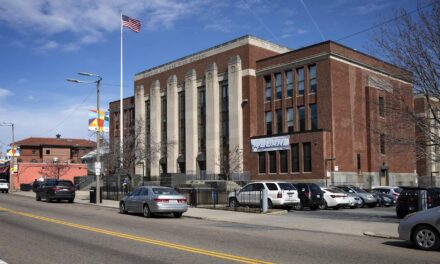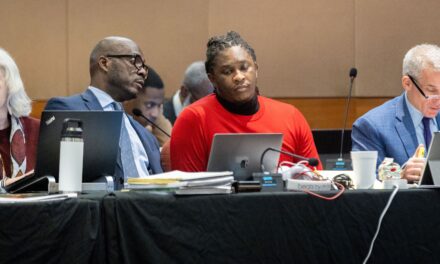Home ownership is supposed to be the American dream, as well as an effective approach for wealth building. But what we know is that Black women and children are the most likely to be evicted and it’s difficult for them to reap the benefits of home ownership as their white counterparts do.
Locked Out is an eye-opening film based in the city of Detroit that spotlights Black women fighting predatory lenders, scammers, evictions and modern-day redlining. Directed by Oscar nominee Kate Davis and Luchina Fisher, Locked Out won Best Documentary Feature at the 27th annual American Black Film Festival in Miami.
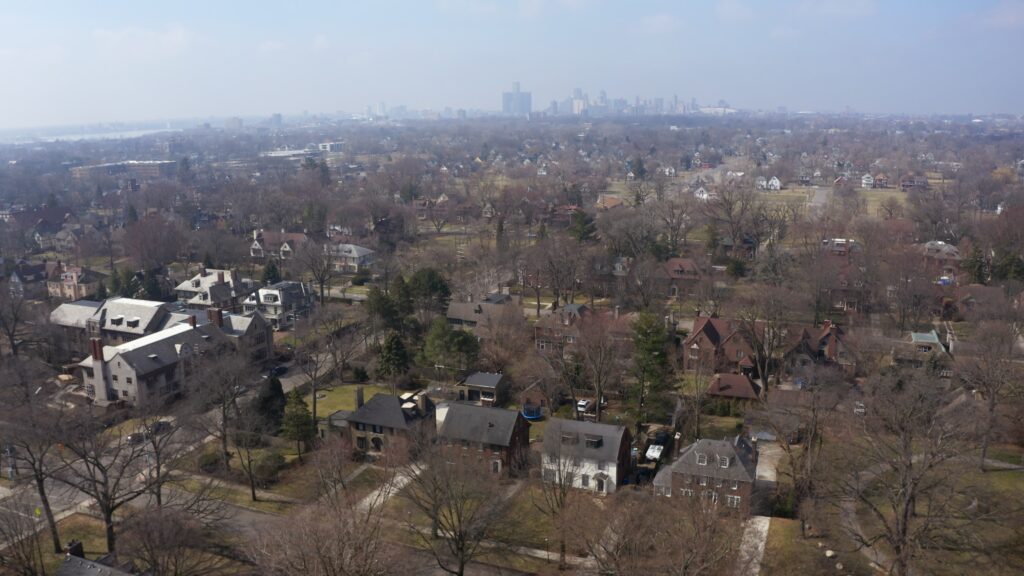
Detroit is the largest city in the state of Michigan. Inspired by the city’s ties to the auto industry, it’s been given the nickname “Motor City.”
I visited Detroit for the first time many years ago, and had the opportunity to explore the city, with the main goal of seeing the Motown Museum. I remember wide neighborhood streets and two-story brick homes that resembled any Midwest scene. I also remember seeing so many Black families in those homes.
What I didn’t realize was that Detroit used to have one of the highest percentages of Black homeownership in the country. It makes sense as Detroit’s population is nearly 80 percent Black. Even so, racial barriers continue to grow and Black women are the ones that are disproportionately affected.
In 2022, 45 percent of Black people owned homes in America compared to 74 percent of whites. These numbers are worse than 60 years ago when housing discrimination was legal.
When we talk about generational wealth and Black family legacy, home ownership has been the most effective way for us to build wealth which can be passed down from generation to generation. It also stabilizes communities, provides access to education, and provides more employment opportunities.
Locked Out spotlights several Black women on their journey to homeownership. They experienced moments of promise and joy, as well as moments of disappointment and anguish. I immediately became invested in these women’s lives and everything they were going through.
Robin, a single mom of eight children, fell behind on her payments during the pandemic. She made the difficult decision to move out, before the landlord could evict her, as it would be a major blow to her credit. Robin didn’t know what she was going to do from there.
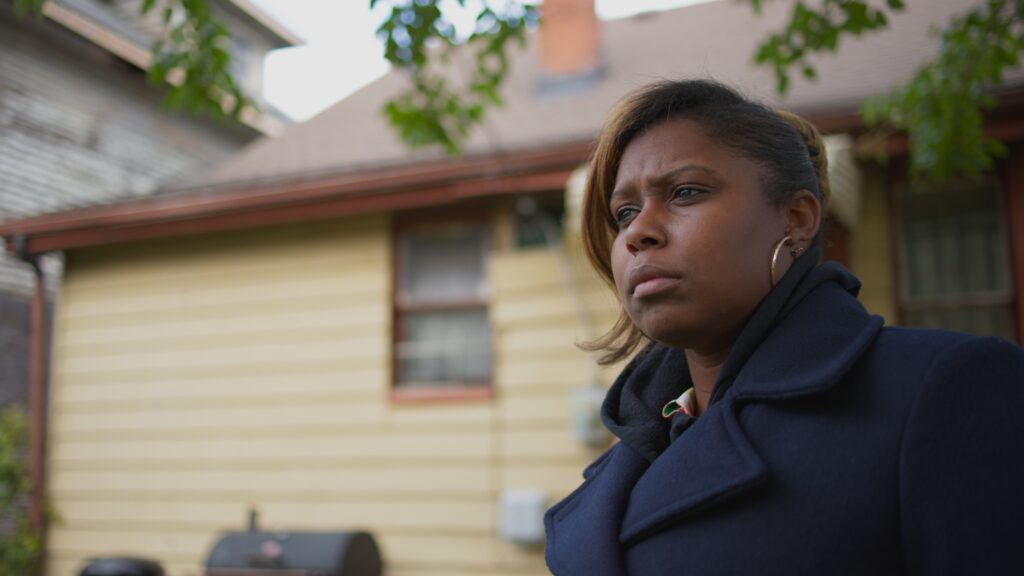
Soummer is married with two older children. She entered into a contract and was told that she would be able to own the home in 10 years. When the time came, that was actually nowhere in the contract. Like many others, Soummer was lured by what’s called a land contract which is often confusing and misleading.
Land contracts give the facade of home ownership, with no equity but still being responsible for all taxes and fees. Typically, there is a clause that states if you’re late on a payment, even by one day, the contract goes month-to-month. At this point, the landlord has the right to evict at any time and usually does. This practice is active in every city across the country.
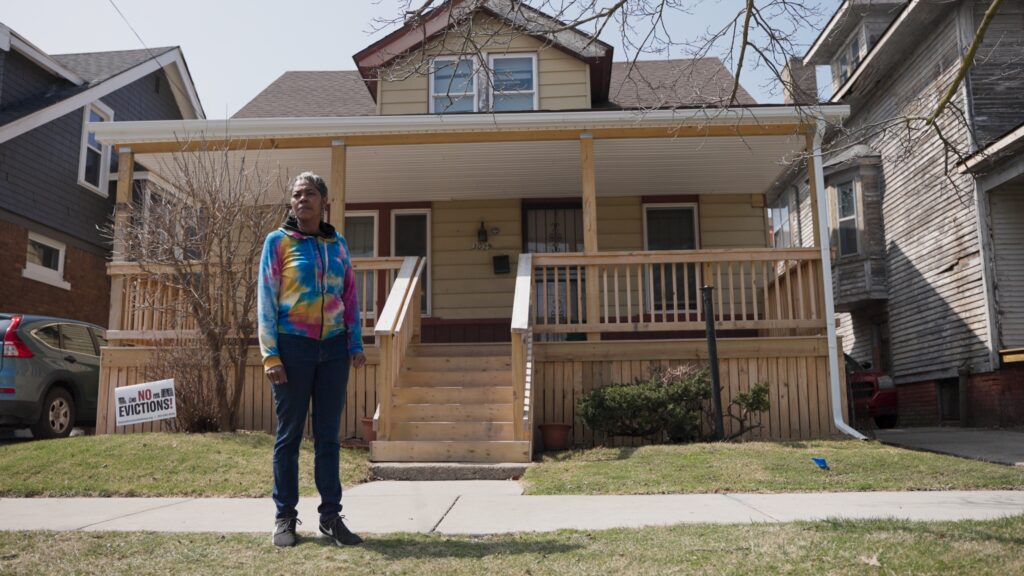
Geraldine is an early childhood educator that has been in her home for over 20 years. After falling on hard times, she fell behind on her taxes. Subsequently, the city of Detroit took and sold her home for $1,211. The good thing was that she was able to obtain a rent-to-own contract in 2016 which she thought provided the opportunity to repurchase the home after one year. However, none of that happened.
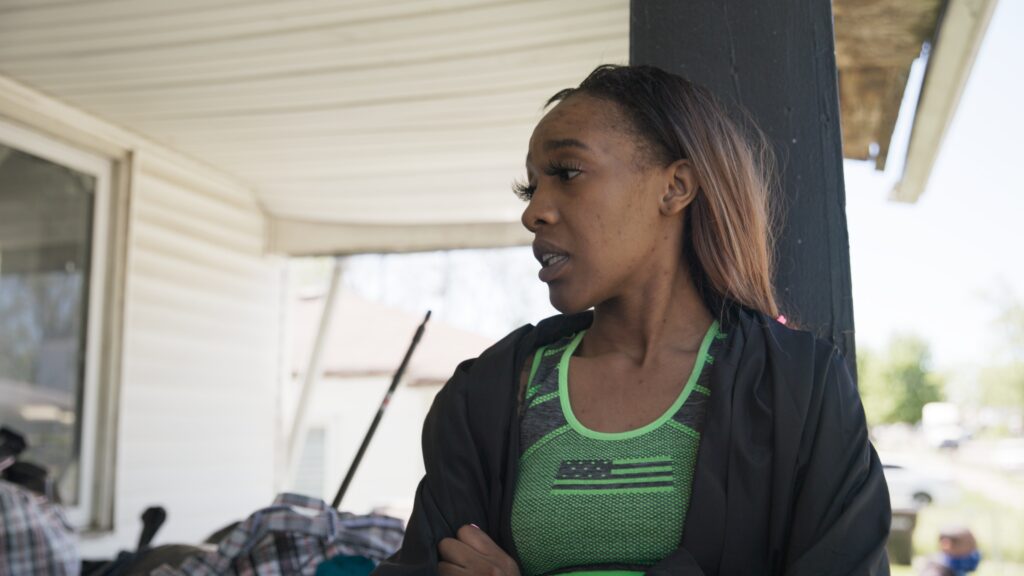
The saddest story for me was about Niaja who thought she was purchasing a home, yet soon discovered she had to pay the back taxes on the home – prior to her moving in. She regrets not reading through the contact thoroughly, because it stated that she was buying the “As Is.” The home was inhabitable for her and her daughter, as it needed so many repairs. Ultimately, she was evicted and has to live in a hotel, until other housing becomes available.
Landlords and/or the city of Detroit failed to make these homes civilized. Worse, these women were expected to pay out-of-pocket to bring the homes up to code for them to stay; money they did not have.
The truth is that these stories represent over 400 years of oppression; a legacy of racism and anti-Black policies that are designed to create barriers for Black people, particularly Black women, from being homeowners. While poor Black men may be locked up, poor Black women are locked out. Both facts work together to spread economic disadvantage in the inner city.
The film reinforces that low-income Black women are evicted at much higher rates than Black men. Within lower income Black communities, women are disproportionately represented at low-wage service jobs. They are able to provide the income documentation necessary to sign a lease. Their income can also come from the form of public assistance. But like in most cities, low wages and welfare stipends have remained stagnant. So, even in high poverty neighborhoods, the average cost of renting meets the total income of welfare recipients and low-wage workers.
The stark difference I see is that oftentimes families in poor white communities still have access to resources within their networks. For example, they have a sibling that went to college, or a family member that owns a home or business. Because of the historical legacy of racial discrimination in this country, many Black families don’t have access to these types of resources and networks.
Another key point that the film mentions is that knowledge is power. Black people are often taken advantage of in these housing contracts, because they simply don’t read them thoroughly or understand all the jargon. We accept what’s being told to us as truth, without doing our due diligence. This is what predatory lenders count on.
The film also gave voice to how the effects of residential segregation have on physical and mental health. Higher levels of city area residential segregation are associated with negative social, economic, and health outcomes.
When barriers to Black home ownership exist, it fuels racial inequality in every area of life. Closing the gap helps create equal access. Black women deserve to live peacefully and safely; anywhere they choose. This film explores the other side of the American dream for Black women; the side that no one wants to look at or even talk about.
I give Locked Out 5/5 stars. It is emotional to watch but a much-needed wake-up call everyone. Visit www.lockedoutfilm.com for information on current screenings.


